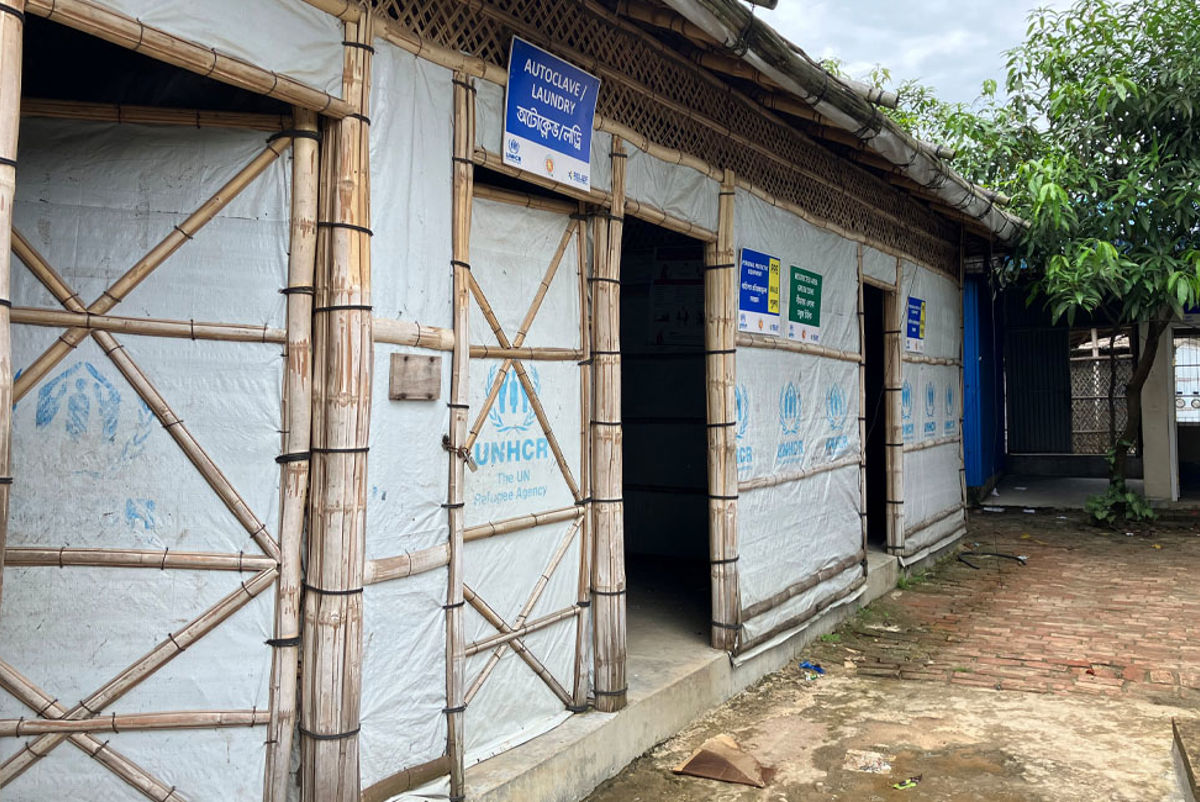Healthcare infrastructure
Access to quality healthcare is the bedrock of any resilient community. Our team supports healthcare projects around the world, spanning infrastructure planning and design as well as enabling advisory services.

Expanding healthcare infrastructure and provision in developing economies comes with its own set of local drivers and challenges. We work with governments, aid agencies, development banks and local communities to develop robust strategies and business cases to make sound and scalable investments in local healthcare systems and services. We also offer technical due diligence and implementation advice, informed by technical, economic and operational expertise.
We work as a full advisory partner on public-private partnership projects, naming and prioritising long-term goals, and listening to those who will benefit from the project. Resilience is key and we take a holistic approach, considering supporting infrastructure such as roads and energy as well as the hospital itself. We work at national, province and city levels, working with insights into local climate risks and plans for mitigation.
Implementing quality healthcare infrastructure
Quality healthcare infrastructure centres on the patient experience, by delivering safety, privacy, cultural and social appropriateness, agency and comfort for patients and staff. For example, applying our acoustics expertise to reduce noise levels within wards, improves patient recovery times and maximising daylight to reducess stress for both staff and patients.
Our research into infection control helps us to influence design choices to reduce infection rates in hospital, for example by ventilation design or spatial planning for single occupancy rooms. Our logistics specialists consider the patient, staff, visitor and goods flows to find cost efficiencies and improve services. Our accessibility team offers key expertise in making healthcare services inclusive to all its users.
Sustainable design ensures efficiencies that can both lower operating costs and reduce environmental impacts, such as with water re-use, energy efficient equipment and natural ventilation. For example, our mechanical engineers test the best orientation of a building and areas of glazing and external solar shading to ensure a comfortable environment for staff and patients and reduce energy costs.
The Samajik Health Science Institute and Research Centre will be an international healthcare facility with comprehensive specialties. Its mission is to deliver excellent, accessible and affordable healthcare with care and compassion. Samajik will be a primary 500-beds teaching hospital, with one wing dedicated to a medical school, which will be connected to a bigger network of local and regional secondary hospitals and clinics. Arup was the designer up to the Design Development stage of the project for the structural, mechanical, electrical, plumbing, civil engineering and fire safety and are now providing consultancy and quality assurance services to the local design team during the detailed engineering design phase.
Arup developed Carebox Low Resource, a guidance document on adapting an existing or temporary space into a Covid-19 treatment centre. It's aimed at organisations who are working in low resources contexts where access to mechanical equipment and other construction supplies may be limited. The scope of this document is to offer supplementary guidance on how to achieve the WHO SARI Treatment Centers design criteria while working within the given contextual constraints, whether that be within an existing hospital complex or as a stand-alone facility.
Get in touch with our team
International development
We offer a comprehensive array of international development services, reflecting the full breadth of Arup's technical and consultancy expertise.

